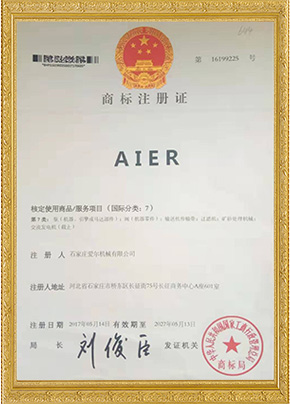dec . 19, 2024 03:42 Back to list
impeller for slurry pump
The Importance of Impellers in Slurry Pumps
Slurry pumps are essential in various industries, including mining, construction, and wastewater treatment, where they are used to transport mixtures of liquids and solids, known as slurries. Among the most critical components of a slurry pump is the impeller. The impeller is a rotating part that plays a vital role in creating the flow and pressure needed to move slurry through piping systems. In this article, we will explore the functions, types, and significance of impellers in slurry pumps.
Function of Impellers
The primary function of an impeller in a slurry pump is to convert the mechanical energy provided by the motor into hydraulic energy, which is necessary for moving the slurry. When the impeller rotates, it imparts energy to the slurry through centrifugal force, propelling it from the eye of the impeller to the discharge outlet. This process is fundamental in overcoming the resistive forces presented by the slurry's viscosity and density.
Types of Impellers
Impellers used in slurry pumps come in various designs, tailored to meet specific operational requirements. The most common types include
1. Open Impellers Open impellers consist of blades without a shroud, allowing solids to pass through without obstruction. This design is ideal for handling slurries with larger solid particles, making them a popular choice in mining and aggregate applications.
2. Closed Impellers Closed impellers have blades that are enclosed by a shroud on both sides. This design provides better efficiency and is suited for handling finer slurries and liquids because it offers more control over the flow. Closed impellers are ideal for applications requiring higher pressures.
3. Vane Impellers This type of impeller features angled blades designed to enhance the flow characteristics of the slurry. Vanes can be adjusted for different flow rates and are beneficial in applications where variable conditions demand flexibility in operation.
impeller for slurry pump

4. Wear-Resistant Impellers Due to the abrasive nature of many slurries, wear-resistant materials such as high chromium alloys or rubber linings are often used for impellers. These materials extend the life of the impeller and, by doing so, reduce maintenance costs and downtime.
Importance of Impellers in Slurry Pumps
The performance of a slurry pump is heavily influenced by its impeller design. An efficient impeller helps to
- Optimize Flow Rates Properly designed impellers can improve the flow rate of the slurry, which is crucial for maintaining productivity and efficiency in operations.
- Reduce Power Consumption An efficient impeller reduces the amount of energy required to pump the slurry, which can lead to significant cost savings over time.
- Minimize Wear and Tear Choosing the right impeller type and material can mitigate wear caused by abrasive solids, extending the life of the pump and reducing repair costs.
- Enhance Reliability Impellers designed to handle specific slurry properties increase the reliability of pumping systems, ensuring minimal operational downtime.
Conclusion
In conclusion, impellers are vital components in slurry pumps, significantly affecting their performance, efficiency, and longevity. By selecting the appropriate type of impeller based on the specifics of the slurry, industries can optimize their pumping systems, leading to better productivity and lower operational costs. As technology advances, ongoing innovations in impeller design and materials will continue to enhance the performance of slurry pumps, catering to the evolving demands of various industrial applications. Understanding the integral role of the impeller in slurry pumping systems is essential for engineers and operators alike to ensure effective operations and maintenance.
-
High Quality Slurry Pump Seals Reliable China Suppliers & Manufacturers
NewsJun.24,2025
-
High Quality Portable Submersible Slurry Pump Supplier & Manufacturer from China
NewsJun.10,2025
-
Slurry Pump Parts Manufacturer – High Quality Rubber Spare Parts from China
NewsJun.10,2025
-
High Quality 1/3 HP Submersible Sump Pump with Vertical - Reliable Supplier & Factory Price
NewsJun.10,2025
-
High-Efficiency Centrifugal Slurry Pumps India
NewsJun.10,2025
-
High Quality Warman Centrifugal Slurry Pump Suppliers & Factory
NewsJun.10,2025
